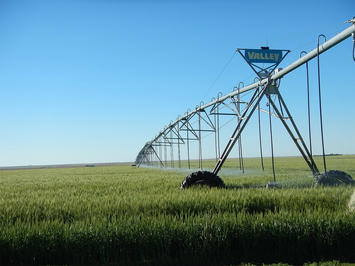
In every pursuit these days, “the narrative” seems to be the thing. Tell a story that checks enough of the right boxes in the zeitgeist, the thinking goes, and you can get citizens, taxpayers and consumers to “buy” what you want them to buy.
This is a reality that’s being used against Flyover Country – but one that also provides us with opportunities to flip the script.
As the late French sociologist Jean Baudrillard put it, in the modern era, what we purchase isn’t just a product but also a piece of “language” that helps create a sense of who we are or want to be. That’s why stories that storytellers tell around products – be they a cup of yogurt or a political candidate – may be more powerful than ever, even if their use of facts is demonstrably shaky.
It wasn’t supposed to be this way. By now in the post-modern age, everything was supposed to be about data and making rational, unassailable conclusions based on mountains of it.
Well, there’s never been more data than before – the amount of information at our hands is increasing exponentially each day – and yet what is it that moves us as individuals and as a society to make decisions, whether that’s what deodorant to purchase or for whom to vote?
Stories. Narrative arcs. Emotional appeals. Great cinematography using drones. Lilting musical scores. I’m still getting over how popular podcasts are in an era when everything is supposed to be about a set of facts presented in the most efficient way.
This is a reality about human existence in 2021 that we in Flyover Country can exploit. At a time when American society itself seems to be unraveling in so many ways, in the heartland we have one genuine story after another we can tell to appeal to and even to soothe the rest of the country.
Consider agriculture, for example. It’s only taken a few years for the forces of “plant-based” foods to use their narratives about healthfulness, about mistreatment of livestock and about methane emissions to make nutrition based on animal products seem like a bloody vestige of the Middle Ages.
At a time when one new scientific study after another reaffirms the nutritional value of meat, dairy and eggs, often overturning decades of false villainy, the forces of plant nutrition – mostly situated, not coincidentally, on the coasts -- would have us believe that it’s better for you and the world to consume a lab-processed, ersatz-meat Beyond Burger made out of pea proteins, one that “bleeds” with beet juice, than to bite into a Big Mac.
The reality is that traditional agriculture based in Flyover Country is doing a phenomenal job both of producing increasingly healthful foods and of minimizing their environmental impacts, more and more enlisting practices that actually enhance local ecosystems and the global situation.
The climate burden of a glass of milk in the United States is now two-thirds smaller than in 1950. For every bushel of corn produced as American agricultural ingenuity has driven up yields, water usage and energy use has decreased. Since 1980, irrigation water use per bushel has fallen by 46 percent, energy use by 41 percent and greenhouse-gas emissions by 31 percent, according to research by Field to Market, an umbrella group that promotes sustainable agriculture, the Wall Street Journal said.
Consider some farms in Flyover Country that increasingly are models rather than outliers. With a handful of farms in Kansas and Nebraska, McCarty Family Farms, for example, milks nearly 9,000 cows and processes more than 32 million gallons of milk each year. Dependent on the underlying Ogallala Aquifer, which is being rapidly depleted across the Great Plains, the operation flushes manure from barns and recycles the water in lagoons that also supply nutrient-rich supplemental irrigation for crops.
McCarty is reclaiming 65,000 gallons of fresh water a day for cows’ drinking and is transitioning to less water-intensive crops, such as sorghum, for feed. Among many other conservation steps, McCarty continually reclaims almost all of the sand that it uses for cattle bedding.
Read the rest of this piece at Flyover Coalition
Dale Buss is founder and executive director of The Flyover Coalition, a not-for-profit organization aimed at helping revitalize and promote the economy, companies and people of the region between the Appalachians and Rockies, the Gulf Coast and the Great Lakes. He is a long-time author, journalist, and magazine and newspaper editor, and contributor to Chief Executive, Forbes, the Wall Street Journal, the New York Times and many other publications. Buss is a Wisconsin native who lives in Michigan and has also lived in Texas, Pennsylvania and Florida.












